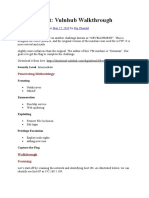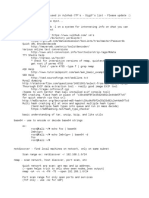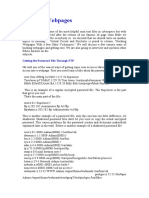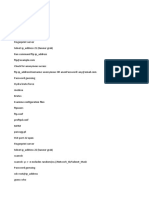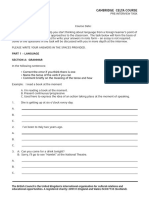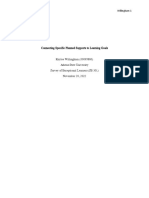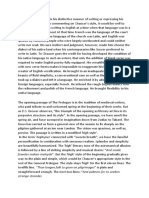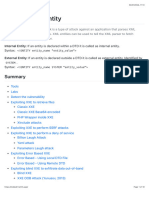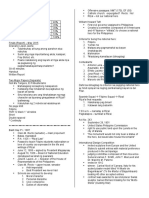0% found this document useful (0 votes)
59 views7 pagesWriteup
The document details a writeup on exploiting a Linux box with a SQL injection vulnerability in a CMS, leading to privilege escalation through path hijacking. The attacker gains access by leveraging a found user credential and then escalates privileges to root by manipulating the system's PATH variable. Key skills learned include web enumeration and process enumeration, along with the exploitation of vulnerabilities in a Linux environment.
Uploaded by
Ivo PonsoCopyright
© © All Rights Reserved
We take content rights seriously. If you suspect this is your content, claim it here.
Available Formats
Download as PDF, TXT or read online on Scribd
0% found this document useful (0 votes)
59 views7 pagesWriteup
The document details a writeup on exploiting a Linux box with a SQL injection vulnerability in a CMS, leading to privilege escalation through path hijacking. The attacker gains access by leveraging a found user credential and then escalates privileges to root by manipulating the system's PATH variable. Key skills learned include web enumeration and process enumeration, along with the exploitation of vulnerabilities in a Linux environment.
Uploaded by
Ivo PonsoCopyright
© © All Rights Reserved
We take content rights seriously. If you suspect this is your content, claim it here.
Available Formats
Download as PDF, TXT or read online on Scribd
/ 7













